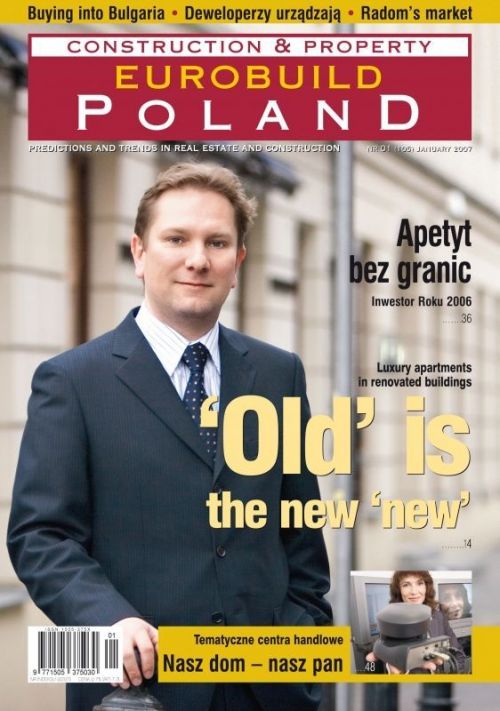This was achieved after the group’s wholly-owned subsidiary AXA Real Estate Investment Managers (AXA REIM) acquired a 50 pct stake in Apollo-Rida’s Polish retail portfolio. The 28 retail properties had originally belonged to the Metro group before being sold to Apollo-Rida for USD 840 mln in 2004. Although AXA is at the moment refusing to confirm any association between themselves and the Apollo-Rida deal, unofficial market sources believe that the value of the transaction is somewhere in the region of EUR 600 mln. In an earlier deal, AXA bought a 49 pct share of Investkredit’s portfolio of Warsaw office buildings for a sum rumoured to be around EUR 145 mln.Intrigued, ‘Eurobuild Poland’ spoke to John Verpeleti, the head of AXA REIM Central Europe KFT about why the group has decided to invest so much in Polish real estate and about what we might expect to see from AXA in the future. John Verpeleti, the head of AXA REIM Central Europe KFT: The acquisitions w






























































